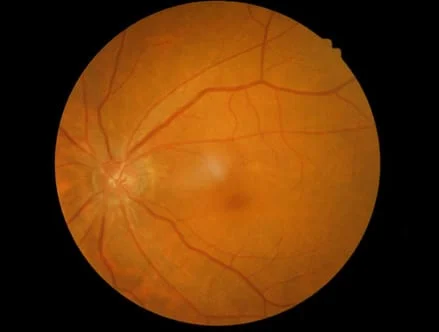Diabetic retinopathy is an issue that occurs in diabetics when there's an abnormality in the blood vessels that supply the retina with blood. Diabetic retinopathy can impair your vision and even lead to vision loss if left unaddressed. As the condition progresses, it may only be treatable through surgery, injections, or another similar medical intervention. At Vision Source Castle Hills, we have years of experience providing residents of Castle Hills and San Antonio, TX, with diabetic retinopathy treatment.
What is Diabetic Retinopathy?
Diabetic retinopathy occurs when you have uncontrolled or poorly managed diabetes. Both types I and type II diabetics can develop this condition. High glucose levels can damage the blood vessels in your retina. High blood sugar levels also weaken the blood vessel walls in your retina, causing the vessels to bulge. These vessels may even leak fluid into the eye, impairing vision. As the condition develops, you will develop new abnormal blood vessels that will leak or bleed more easily than the old ones.
Symptoms
Diabetic retinopathy is a condition that gradually worsens. Initially, you may not notice any symptoms. Floaters in your vision are usually the first symptom to appear. You might notice your visual acuity fluctuating. Sometimes, diabetic retinopathy will affect your color vision. For some individuals, dark or empty spots will arise in their vision. If you experience vision loss from diabetic retinopathy, it can be permanent. In the more severe cases, you can experience blindness. This condition tends to affect both of your eyes.
Diagnostics
If you have diabetes or are at risk for diabetes, you should have yearly vision exams. Some people may require more frequent exams. During the evaluation, our eye doctor will ask you to read different lines of letters magnified at different strengths to determine if you have a vision deficit. Our eye doctor will then use a specialized magnifying device to look inside your eye and check your retina. This is done to check for the development of abnormal blood vessels, swelling, or bleeding in the retina. Further testing will be conducted as necessary.
Treatment
Treatment will vary depending on the stage of your condition. Early on, our doctor may recommend monitoring the progression of your condition. Our practitioner may also recommend you see a specialist for better blood sugar management to slow the progression. In the later stages, you may need vascular endothelial growth factor (VEGF) inhibitor injections. These stop new blood vessel growth. For severe cases, our eye doctor may recommend you see a specialist who for surgical intervention.
Diabetic Retinopathy Treatment in Castle Hills and San Antonio, TX
If you suspect you are suffering from diabetic retinopathy, contact Vision Source Castle Hills today at (210) 341-5774.

